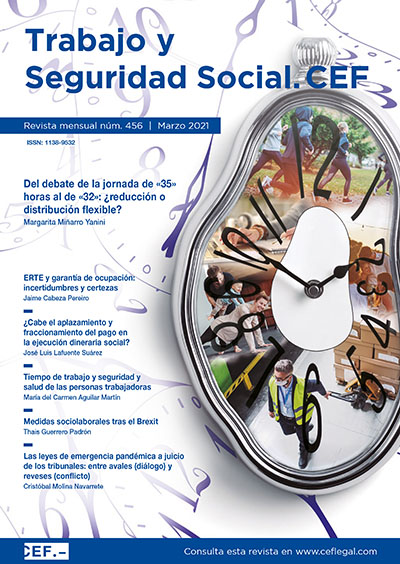Lay-offs and short-time and occupational guarantee: uncertainties and certainties
DOI:
https://doi.org/10.51302/rtss.2021.2348Keywords:
lay-off and short-time, COVID-19, unemployment protection, employment guaranteeAbstract
The maintenance of employment has been the main challenge during the COVID-19 pandemic. For this purpose, legislation on lay-off and short-time has been designed with the aim of avoiding mass redundancies and mass unemployment. These sort of measures have been passed accompanied by other legislative modifications –for instance, preference of teleworking, working time flexibility or limitations for collective and individual dismissals– put in force with the same objective of preserving employment. Focusing on lay-off and short-time, the concept of force majeure has been broadened with the aim of sheltering the vast majority of situations caused by the pandemic. On the other hand, economic, technical, organizational and productive reasons have been adapted with the purpose of allowing a transition from lay-off and short-time to the full recovery of the activity. Meanwhile, other provisions have guaranteed full respect to workers’ rights and security. Among others, the employment guarantee, impairing the expiration of contracts of workers affected by lay-offs or short-time decisions or some improvements in the unemployment protection, gave coverage enough in this crisis due to the pandemic. However, all this «social shield» has discovered not little shortcomings of the Spanish model of employment protection. Some of those weaknesses are discussed in this article.



















